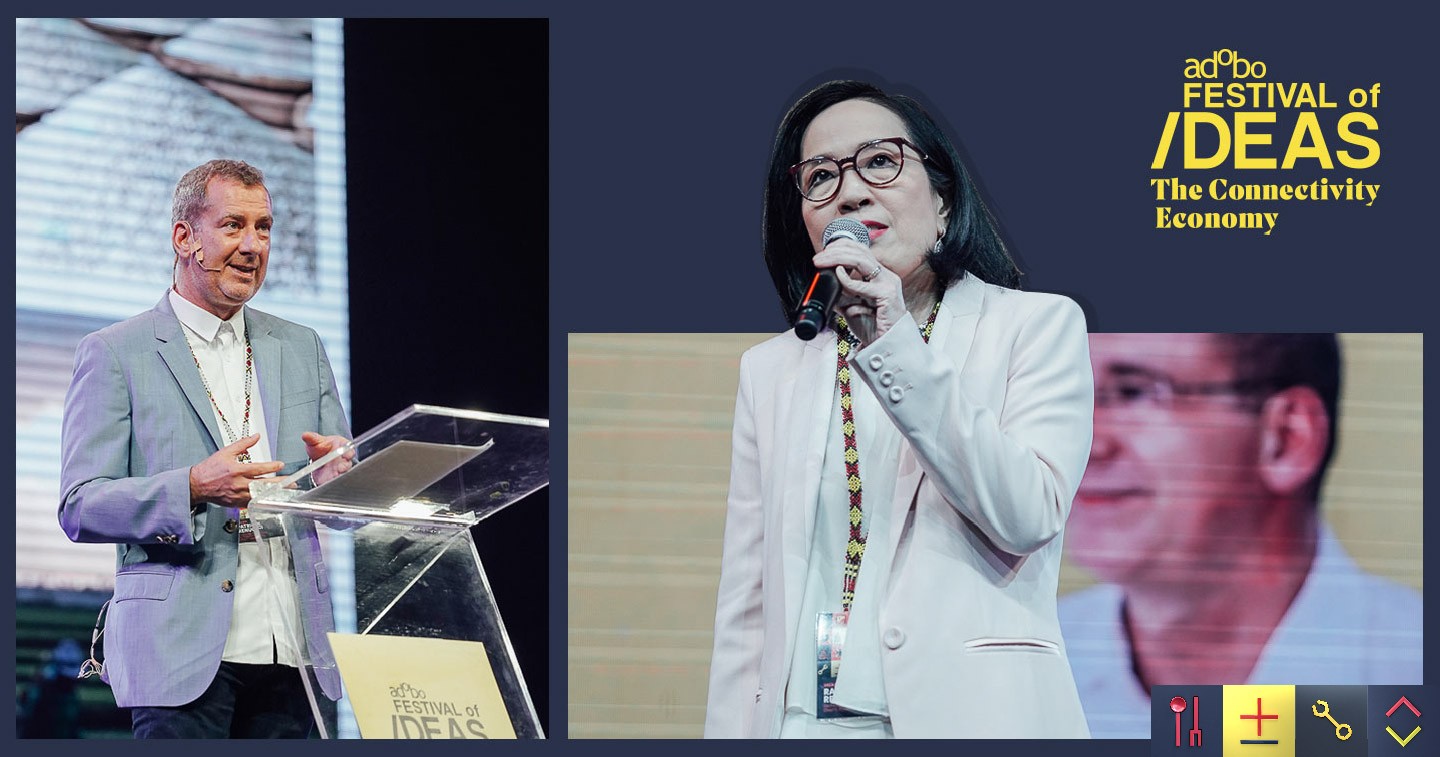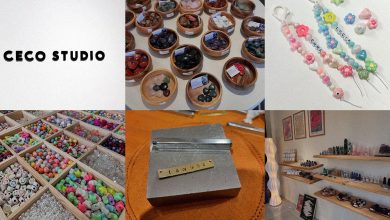MANILA, PHILIPPINES – What does it take to not just change a national industry — but actually revolutionize one of the most competitive and volatile industries and make a country the best in the world? It’s impossible to talk about Asia’s main staple, rice, without getting political, but Rachel and Patrick Renucci of Chen Yi Agventures had no qualms or trepidation to speak about their commitment to build sustainable livelihoods for thousands of farmers in Leyte and reclaim the Philippines’ title as world’s best rice producer at the fifth adobo Festival of Ideas held last December 5 at the Newport Performing Arts Theater, Resorts World Manila.
Aptly titled “The Rice Revolution”, their session was in line with this year’s festival theme of “The Connectivity Economy” — which aimed to explore how the modern economy is fueled by collaboration over competition; how unexpected connections create opportunity; and how creative and innovative thinking plays in achieving business and sustainability goals. For this session, the Renuccis shared how they formed connections within Tech, Agriculture, Food, People, and Education in providing a solution to a devastated province after Typhoon Yolanda and rebuilding an entire nation’s rice industry.
Sans detailed presentation slides or graphs, Rachel Renucci kicked off the session with an energetic introduction and jumped into the core mission behind the successful enterprise that she and her husband Patrick fully invested in after living busy lives in Paris. She dove into how the couple went full in with this venture in the Philippines, using data and research-driven methods to enable the thousands of affected farmers barely subsisting on unsustainable or informal credit systems with high interests through a completely transparent partnership program with the farmers, or The Renucci Rice Partnership Program — an end-to-end initiative enabling Leyte’s farmers to produce grains and earn a living wage by providing all farming inputs and contribute in the farming process from preparation to planting and harvesting.
In return, they are have access to fertilizers, pesticides, single kind of high-yielding seed, not to mention access to the company’s state-of-the-art processing center that drastically increases quantity and quality of the grains. Furthermore, Rachel stressed on another benefit that they provide the farmers that is severely lacking not just in the Philippine agricultural industry: by offering low interest loans in kind and cutting out middle men or the need to seek money-lenders just to have capital, farmers have the opportunity to gain access to credit in a country where alternative collaterals have yet to be accepted, and true financial inclusion is still far from being achieved.
The couple behind @chenyiph, Rachel & Patrick Renucci, who revolutionized the PH rice industry on creating a sustainable business that takes care of Mother Earth + community while still being profitable. #adoboFOI2019 pic.twitter.com/SVEEacqLDU
— adobo magazine (@adobomagazine) December 5, 2019
The Renuccis went into detail about the empirical and data-backed methods they’ve used in their work, resulting in a rice processing complex in Alangalang, Leyte that’s worth approx. 1.7 billion pesos; from only producing 2.5 metric tons (50 to 60 sacks of unhusked rice) per hectare, to an average of 7–10 metric tons; not to mention the Dalisay Rice (meaning pure and true in the Filipino tongue) was named the world’s third best by the World Rice Conference 2019. All this, the couple concluded, is proof that solutions and innovation — and more great things — are created in collaboration over competition.
The couple concluded their talk by emphasizing that albeit the large feat they’ve accomplished, they’ve only barely scratched the surface in terms of completely revolutionizing the entire industry for the country to reclaim its pride as the world’s best rice producer. So many various elements and actors — including laws and competitors — need to be involved for change to happen; that the entire supply chain needs to be uplifted, and by working closely with different links and sectors in the value chain, we can hope for the entire industry to improve.
By highlighting the value of collaboration over competition, the couple have no qualms over their model being replicated. Patrick stressed, “We are showing the rest of the world that sustainable business is the only one that we’ll be okay on the long run because you need to involve all the stakeholders, and all the stakeholders have to be earning money.” Be inspired by this galvanizing session and learn how collaboration and sustainability can catalyze an entire industry’s growth and progress.
Watch their full session at the recently concluded adobo Festival of Ideas 2019 here:









